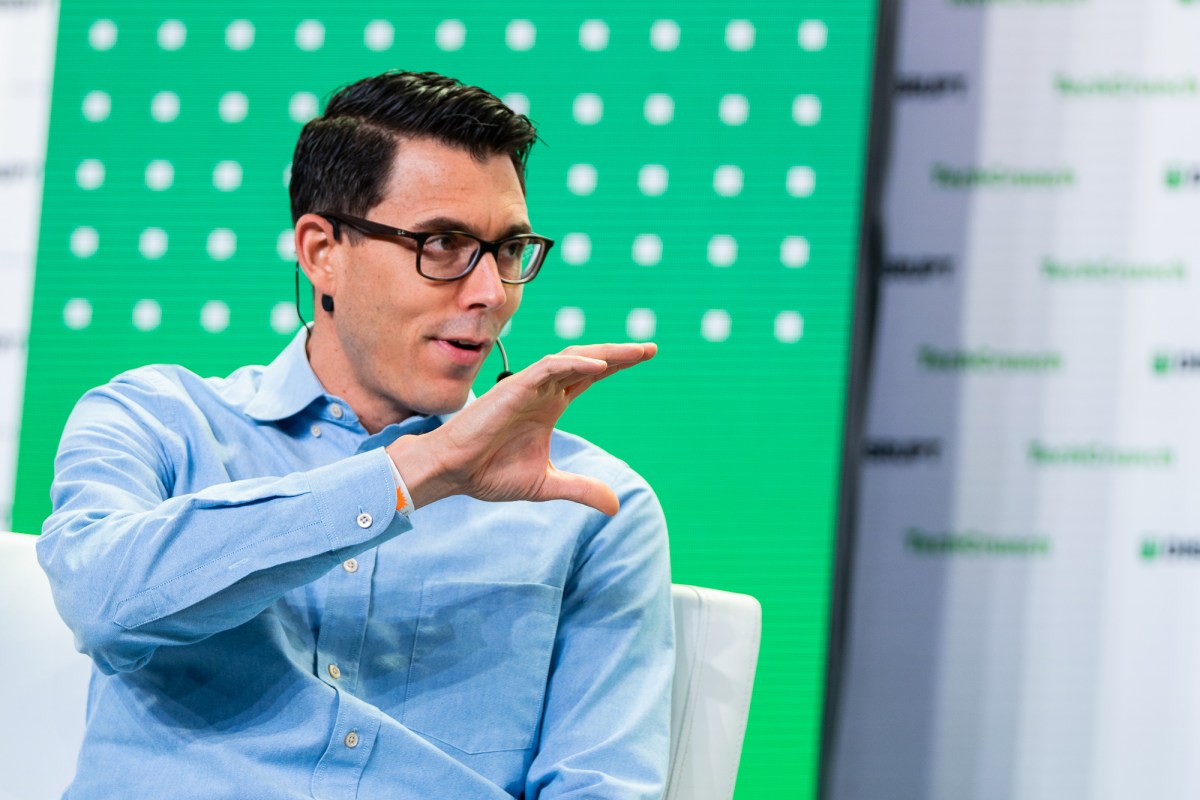Public health experts are bracing for what could be fundamental changes to childhood vaccine policies that don’t align with scientific consensus, as the Centers for Disease Control and Prevention undergoes a major leadership shakeup.
Last week, health secretary Robert F. Kennedy Jr. ousted CDC director Susan Monarez after she refused his demand to approve all recommendations made by the agency’s vaccine advisory committee, whose members were handpicked by him. Kennedy, a longtime vaccine critic, has since named one of his allies, former biotech investor Jim O’Neill, as acting director.
Four other senior CDC leaders also resigned, including the director of the National Center for Immunization and Respiratory Diseases.
Amid the instability, experts fear that the Advisory Committee on Immunization Practices, which is slated to meet on Sept. 18 and 19, could propose severe changes that limit commonly used vaccines. The committee plans to discuss not only Covid-19 vaccines, but also other shots to protect against infectious diseases, including hepatitis B, respiratory syncytial virus, as well as measles, mumps, rubella, and varicella.
At ACIP’s last meeting, the first gathering of the new members chosen by Kennedy, some expressed skepticism towards vaccines, but the group did not make any recommendations that created major disruptions to the current schedule for children.
Now though, with Monarez gone, experts are concerned that members could “be very much emboldened to make more aggressive changes,” said Jose Romero, a former chair of the committee who has consulted for pharma companies on vaccine policy since leaving the committee.
It’s not yet clear how long O’Neill will be acting director and how he will handle ACIP recommendations. He has described himself as “very strongly pro-vaccine,” but he’s also closely aligned with Kennedy.
Kennedy and others in the administration have argued that ACIP historically rubber-stamped vaccine decisions — although the committee did debate evidence and withhold recommendations in some cases — and that vaccine makers should face greater scrutiny.
The panel’s recommendations have real-world consequences. Federal and private payers are required to make vaccines free for people if they are recommended by ACIP and adopted by the CDC. The committee also recommends which vaccines it thinks should be part of the Vaccines For Children Program, which covers the costs of vaccines and therapies for children without health insurance or on Medicaid. A little over half the nation’s children receive vaccines through the VFC program.
In particular, experts fear that the panel may restrict or roll back a recommendation that it made last meeting in support of a preventive monoclonal antibody to protect babies against RSV. Separately, they believe, members are likely to question hepatitis B shots that are given to infants at birth and that have been credited with preventing children from developing debilitating, lifelong conditions.
“There’s not a lot of surprise likely to loom in terms of where this committee will go in this coming meeting and going forward,” said Jason Schwartz, an associate professor of public health at Yale University. “It will be to continue to emphasize the alleged potential harms of vaccines, to understate their value and their effectiveness, and to continue to chip away at the infrastructure for our vaccine recommendations that we’ve had for decades.”
Covid-19
The Food and Drug Administration last week revoked emergency use authorizations for Covid-19 vaccines and issued narrower approvals that could make them more difficult to access, particularly for young children.
Specifically, Pfizer’s vaccine, developed with BioNTech, had been available to children over 6 months old under an emergency use authorization, but the latest move now restricts the shot to children older than 5. Moderna’s vaccine is available for children as young as 6 months, but only for those with an underlying health condition that puts them at higher risk of severe illness from a Covid infection.
Kennedy and others in the administration have argued that anyone can still get Covid vaccines if they want it but that the risks of these vaccines often outweigh any demonstrable benefit five years after the outbreak of the Covid pandemic.
Experts expect that ACIP will support the FDA authorizations, which the American Academy of Pediatrics called “deeply troubling.” The pediatric group issued its own recommendations that Covid-19 shots should be available for all children between 6 months and 23 months, as well as children over 2 at risk for severe disease.
RSV
At the last ACIP meeting, members voted to recommend a new monoclonal antibody to protect infants from RSV, Merck’s Enflonsia. A similar product, Sanofi and AstraZeneca’s Beyfortus, has been in use since the fall of 2023.
But during the meeting, member Retsef Levi, a professor of operations management at MIT’s Sloan School of Management, raised concern that there appeared to be more deaths in arms of clinical trials where children got the antibodies than in placebo arms. CDC and FDA staff noted that all deaths in trials are rigorously studied and researchers concluded that the deaths in these trials were not linked to the antibody. Levi nonetheless voted against recommending Enflonsia.
Since the meeting has concluded, another ACIP member, Robert Malone, posted on his blog a piece by Yaffa Shir-Raz, a researcher at the University of Haifa. She argued that the presentation of data on the antibody was flawed and obscured safety risks. Jake Scott, an infectious disease specialist at Stanford University, wrote a piece countering the post and explaining why the CDC’s analysis was epidemiologically sound.
Malone, though, said his trust in the CDC’s data presentation “appears to have been ill-advised.” He wrote that committee members had little chance to review the data ahead of the meeting, and “going forward, speaking for myself, based on these findings, I will no longer be able to trust that what is presented in CDC summaries to the ACIP is transparent, accurate, and unbiased.”
Malone wrote on his blog that he couldn’t discuss future ACIP plans, but experts suspect that the committee may now unwind the RSV recommendation. They fear the group may pull its backing not only for Merck’s antibody, but also for the one made by Sanofi and AstraZeneca. Shir-Raz in her post suggested that “the seizure risk is likely a class effect.”
If ACIP does do that, “that’s a tremendous loss for children, and places their health care and their lives in jeopardy,” Romero said. Babies’ lungs are still developing and they’re most vulnerable to RSV. Sanofi and AstraZeneca’s antibody, as well as a new maternal vaccine, have been key tools to protect young children. A CDC report found that last winter, the first time these new measures were available, there was a substantial drop in RSV hospitalizations among babies.
Kennedy may support withdrawing recommendations for antibodies. When ACIP voted for Merck’s antibody in the last meeting, a CDC director had not yet been confirmed by the Senate, so it was up to Kennedy to decide whether or not to adopt the recommendation; he did not take any action. It was only after Monarez was confirmed as CDC director that she adopted it.
James Campbell, a pediatric infectious disease specialist at the University of Maryland, said these developments are a concerning sign for how the new ACIP will overturn traditional processes as they make decisions.
Members shouldn’t have voted on the antibody in the last meeting if they felt like they needed more time to review data, because questions and disagreements should be discussed in the official public meetings with health officials and not online after the fact, he said. “It’s not fair to the American public to have that as the deliberative process to make such important decisions for our children.”
Hepatitis B
Experts fear the committee will also question the first hepatitis B shot given to infants at birth before they leave the hospital, which anti-vaccine advocates have long targeted.
ACIP chair Martin Kulldorff raised concerns in his opening remarks in the earlier meeting: “Is it wise to administer a birth dose of hepatitis B vaccine to every newborn before leaving the hospital?” he asked. “That’s the question. Unless the mother is hepatitis B positive, an argument could be made to delay the vaccine for this infection, which is primarily spread by sexual activity and intravenous drug use.”
Experts said that even though mothers are routinely tested for hepatitis B during pregnancy, it’s not a foolproof method. The mother’s status could change after she takes the test, and there could be documentation errors. If infants do acquire hepatitis B from their mothers, the consequences can be devastating — they are at higher risk of lifelong liver infection that may lead to liver cancer or the need for a transplant before they reach 20-years-old. There’s no cure for the infection.
The birth dose “is a way of having a complete safety net for those babies,” and there’s no safety reason to remove it, Campbell said. With the current vaccination schedule, the U.S. is getting close to entirely eliminating hepatitis B cases at birth, he added.
MMRV
In the previous ACIP meeting, Kulldorff raised a concern around MMRV vaccination — that for the first dose given to children between 12 to 47 months old, the combination MMRV shot poses a higher risk of seizure compared with giving two separate shots of MMR and varicella vaccines. (The CDC says the seizure risk for the combination shot is about 8 out of every 100,000 children, while the risk for the separate shots is about 4 out of every 100,000.)
Kulldorff then proposed that the MMRV combination should not be administered as the first dose for children under 47 months, since doctors can use the separate shots instead.
The CDC already indicates that it prefers the first dose be given as two separate shots, and pediatricians already widely follow that guidance. If the ACIP committee votes to formally withdraw its recommendation for the MMRV combination shot for the first dose, the effects on real-world practice would be minimal, experts said.
They noted, though, that they’re concerned with how the seizure risk will be portrayed. “These are nuanced, complex issues, right? But if the takeaway and the headlines are — MMRV causes seizures — then I worry about the way in which the message is being conveyed,” said Scott, the infectious disease specialist at Stanford.
He also fears it’s only a matter of time before ACIP restricts the use of the MMRV combination shot not only for the first dose, but also for subsequent doses for which there is not an increased risk of seizures. Anything that limits vaccinations or adds complexity to vaccination schedules, he said, would be a problem, particularly as the country grapples with increasing numbers of measles outbreaks.
Source link

